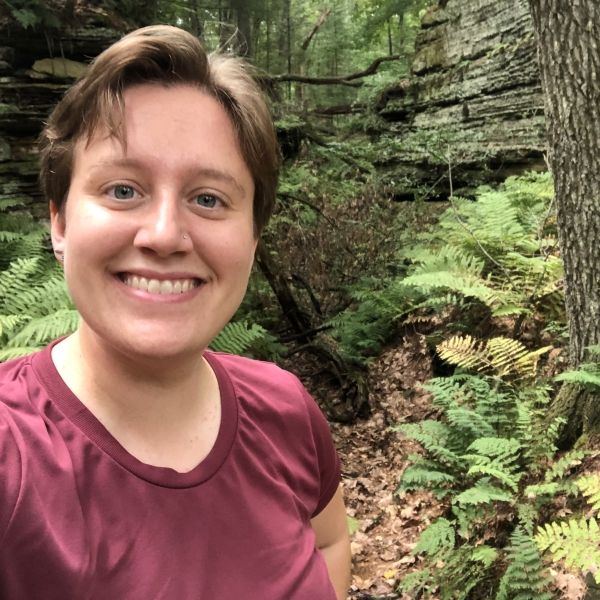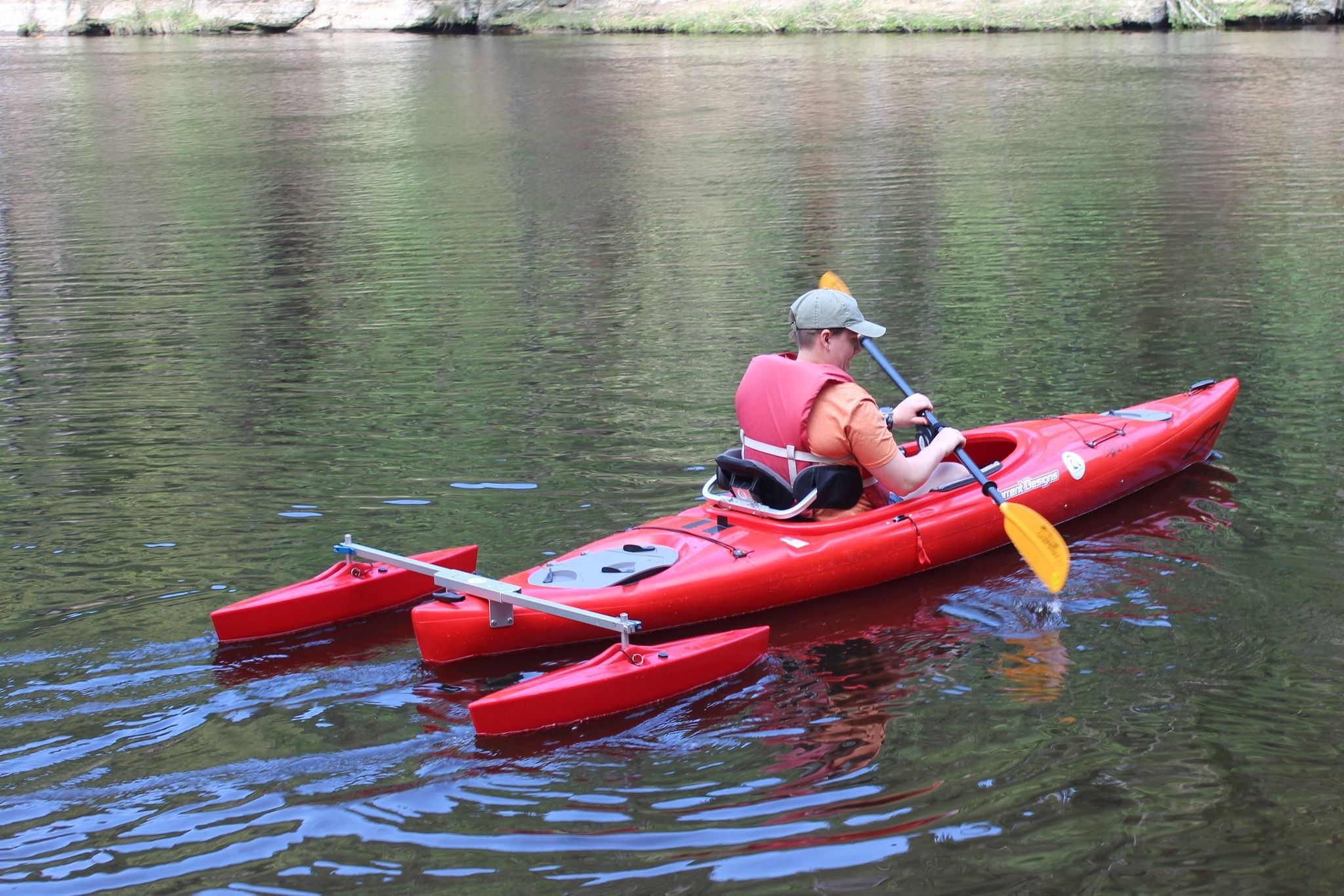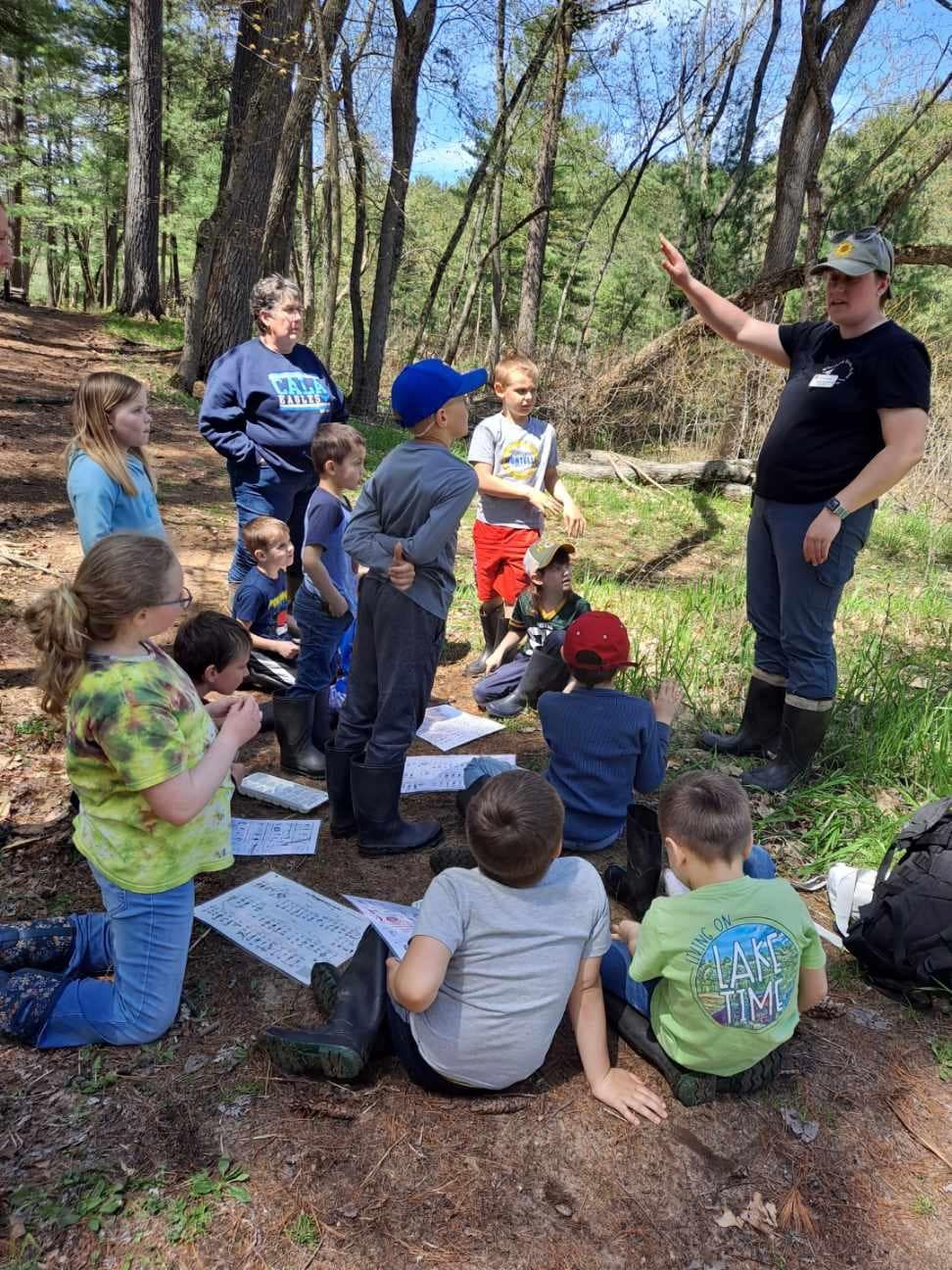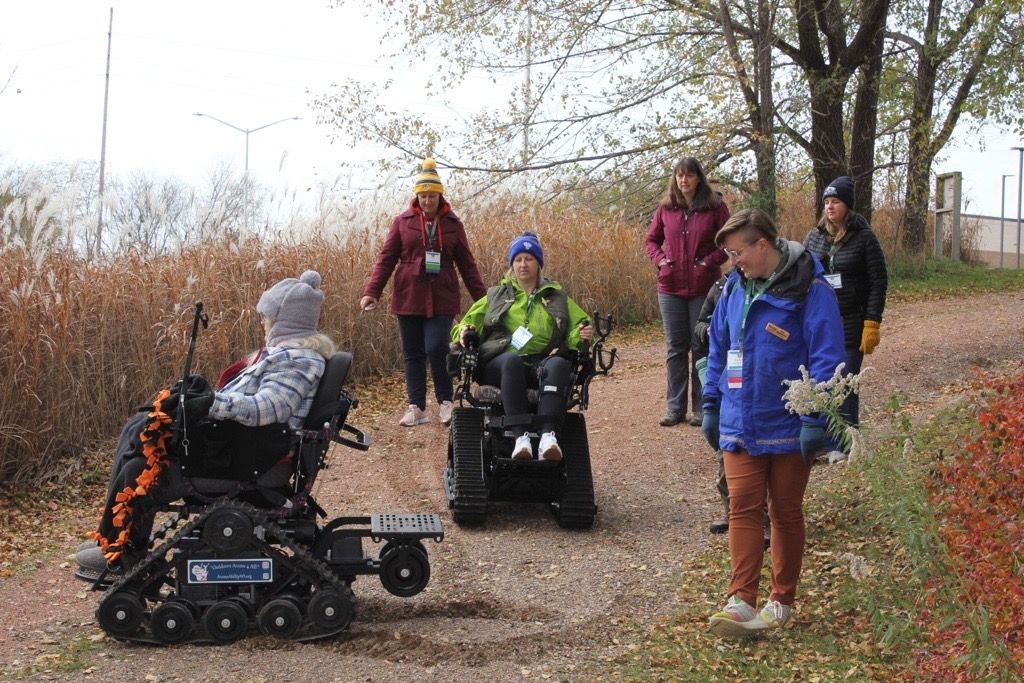Image

-
Rachael Lewandowski-Sarette (she/her)
On-Site and Accessibility Coordinator, Upham Woods Outdoor Learning Center
- 30 Under 30
- 2024
Rachael is an environmental educator working to make the outdoors more accessible for all so that all students can learn and build community in the outdoors.
United States, Age 29
How are you using education to build more sustainable and equitable communities? Tell us about your EE work and impact.
In my work, I am involved within many different levels to increase accessibility in my programs and increase statewide capacity for this focus.
As an accessibility coordinator at Upham Woods, I work on implementing universal design principles into all of our programs. Over the past year, this has looked like arranging ASL interpreters, writing grants to purchase adaptive equipment, and developing professional development offerings for my colleagues. We have also started working with community members to design and implement specialized programming. One such experience was designed after some Deaf/Hard-of-hearing youth had positive experiences in Upham’s educational programs. These youth approached me to support them in running an ASL day camp. Through this day camp, these youth grew their leadership capacity, shared their stories, and created a space where Deaf, HOH, and hearing youth could come together to build community in the outdoors. Fifty people attended camp and about 50% of attendees identified as Deaf/HOH.
Beyond my paid work, I am a board member of the Wisconsin Association for Environmental Education, which spent the past year reworking our accessibility initiatives to increase access and inclusion at our annual conference by writing accessibility guidelines and providing accessibility training to all conference presenters.
Tell us about your journey to where you are today. What inspired you? What has your path been like?
My environmental education journey has taken me across the country to many residential Environmental Education programs including Wolf Ridge in northern Minnesota and Pathfinder Ranch in California. These programs influenced my teaching style and passion for the outdoors. I have also worked at various organizations focused on disability programming like Special Olympics Illinois and True Friends Camps in Minnesota. As I continued through these various jobs, my professional goal solidified as I realized I wanted to see more accessible environmental education programs focused on integrating the disability community. Then an opportunity presented itself. When I started at Upham Woods in 2021, I had an opportunity to shape my position where I would spend part of my time focused on our residential programs and part of the time focused on access and inclusion.
How can people learn more about or support your work?
You can follow both Upham Woods and WAEE Facebook pages or check out our websites!
Upham Woods:
WAEE:
A Little More About Me
What advice would you give to the next generation of leaders?
Sometimes, finding the right position for you requires being in the right place at the right time. But you can’t spend your whole life waiting for that opportunity to present itself. What experiences and skills are you collecting right now to prepare for your leadership opportunity?
What book, film, or art piece has had the greatest impact on you?
There are so many great books and podcasts out there! Some recent impactful books are Braiding Sweetgrass by Robin Wall Kimmer and Demystifying Disability by Emily Ladau. And some podcast series that I have enjoyed include Breaking Green Ceilings by Sapna Mulki, and Power Not Pity by Bri M.
What is the wildest or most surprising environmental/nature fun-fact you know?
Woodpecker tongues are crazy. They can be up to one-third of the bird’s body length and wrap around the skull when not extended.
What’s a passion project of yours outside of your work?
Recently, I’ve been painting and planting a native pollinator garden.
Rachael discusses sedimentary rock formation with students during a field trip. Credit: Danielle Vanek
Rachael facilitates a low ropes challenge course during a spring youth leadership day. Credit: Brandon Springer

Rachael trains staff on how to use an adaptive kayak with outriggers and a paddle pivot during an in-service day. Credit: Katie Lamoreaux

\Rachael teaches 3rd graders about macroinvertabretes and water ecology. Credit: Christa Van Treek

Rachael co-leads a conference workshop for environmental educators on accessibility in the outdoors. Credit: Heidi Vassel